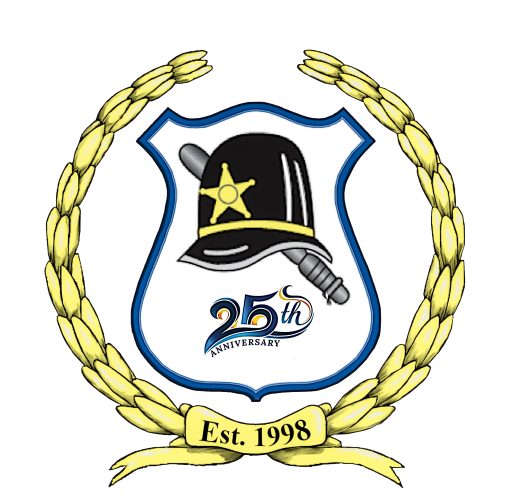Age: 43
Served only a few months
To March 26, 1876
OFFICER
James was born about 1833 in Harrisburg, Kentucky to John and Martha (possibly England) Gallagher. He had at least one brother, Jack Gallagher, living in Louisville and working in law enforcement.
During 1863, James was single, living on Central Avenue in Cincinnati. He registered for the draft during the Civil War, but we have no record of him serving or being in Cincinnati during the war. Otherwise, he painted coaches in 1863 and from 1870 to 1875 and, during part or all of that time, for the Foreman Coach Painting Shop.
During 1871 he moved to the Longworth Street House on the northwest corner of Longworth Street and Central Avenue (about where the Cincinnati Fire Memorial statue now sets).
Near the end of 1875 or the beginning of 1876, Jim was appointed Substitute Patrolman for the Cincinnati Police Department.
MURDERER
John Tute (aka, John F. Dunbar) was and Englishman with an extensive criminal history “out west” and in New Orleans and well known among law enforcement circles as a top-notch safecracker.
He was arrested in New Orleans during 1853 for a burglary, convicted, and sentenced to seven years in the Louisiana Penitentiary.
From there he escaped and was arrested again in 1869 for burglary and for garroting a man to death. The arresting officer died during the trial and the murder charge was dismissed for want of a prosecuting witness. He served one year for the burglary, was released, and then re-arrested in 1872 for the prison escape. Soon thereafter, the Louisiana governor pardoned him.
He returned to New Orleans where he participated in a number of burglaries, killed his accomplice, and was found not guilty at his trial.
By March 25, 1876, he was in Cincinnati in front of Substitute Patrolman Gallagher’s residence on Longworth Street.
INCIDENT
On the night of March 25, 1876, about 9 p.m., Miss Kate Grove of Court Street and James Gleason were conversing in front of the Longworth Street House. Gleason was just about to introduce to Miss Grove to another young man, James Wells, when a drunken Dunbar, calling himself “Comanche Bill”, while making whooping sounds like an Indian war cry, tried to push his way through the threesome. He was easily pushed aside by Gleason.
Dunbar turned toward Gleason and said, “You’re a smart duck, aint you.” Wells told him to be on his way. Dunbar pulled a revolver and took two shots at the trio and missed. They escaped around the corner and he took two more shots at a lamp on the corner.
Though off duty, Patrolman Gallagher, ran down the stairs and yelled, “Here! What’s the matter with you?” Dunbar replied, “I’ll show you what’s the matter with me, you son of a bitch,” and shot the officer twice; once in the abdomen, penetrating the stomach and lodging in a vertebra, and once through his thigh. Patrolman Gallagher pulled his revolver and returned fire, striking Dunbar once in the hand as he ran down Longworth Street toward John.
Frank Noell, a citizen who may or may not have known Dunbar had fired all six shots, gave chase and caught Dunbar before he went fifty yards.
Patrolman Gallagher walked around the corner into a tailor’s store. He faltered and had to be steadied and said, “I believe I’m hit somewhere.” Dr. Phillip Williams and the Coroner were summoned.
It was obvious that Patrolman Gallagher was hemorrhaging internally, and the wound would be fatal. By the time Police Chief Snelbaker arrived, Patrolman Gallagher could not see well; so it was decided not to bring Dunbar for identification.
In severe pain and unable to keep down any opiates, about 3 a.m. on the 26th, Patrolman Gallagher asked his doctor to be candid with him about his condition and was told that it was surprising he had lived as long as he had.
Patrolman Gallagher informed the doctor he had no relatives or personal property in the city, but that he would like to have his brother respond. Police Chief Snelbaker telegraphed his brother, Louisville Detective Jack Gallagher, but it turned out that he was in New Orleans on business.
DEATH
Patrolman Gallagher died later that day on March 26, 1877, at 12:05 p.m.
Patrolman Gallagher was survived by his mother, Martha Gallagher; and siblings, John S. “Jack” Gallagher and Susan M. Gallagher. He was buried in Spring Grove Cemetery on March 30, 1876, at 3:30 p.m. in a lot donated by Richard Witt of Dunn and Witt.
JUSTICE
After an impassioned plea before the Hamilton County judge, Dunbar was sentenced to only seven years in prison. Two years later, during 1878, the Ohio governor pardoned him.
EPILOGUE
Dunbar moved on to Rhode Island where, during 1881, he was charged with several burglaries. Again, he was sentenced to seven years. In 1882, he savagely assaulted two other inmates with a broad-faced hammer, nearly killing one. For that, he was sentenced to an additional two years. He died in prison of Tuberculosis on January 11, 1887.
If you know of any information, archives, artifacts, or images regarding this officer or incident, please contact the Greater Cincinnati Police Historical Society at Memorial@Police-Museum.org.
© This narrative was further researched and revised on February 16, 2020 by Cincinnati Police Lieutenant Stephen R. Kramer (Retired), Greater Cincinnati Police Historical Society President. All rights are reserved to him and the Greater Cincinnati Police Historical Society.
